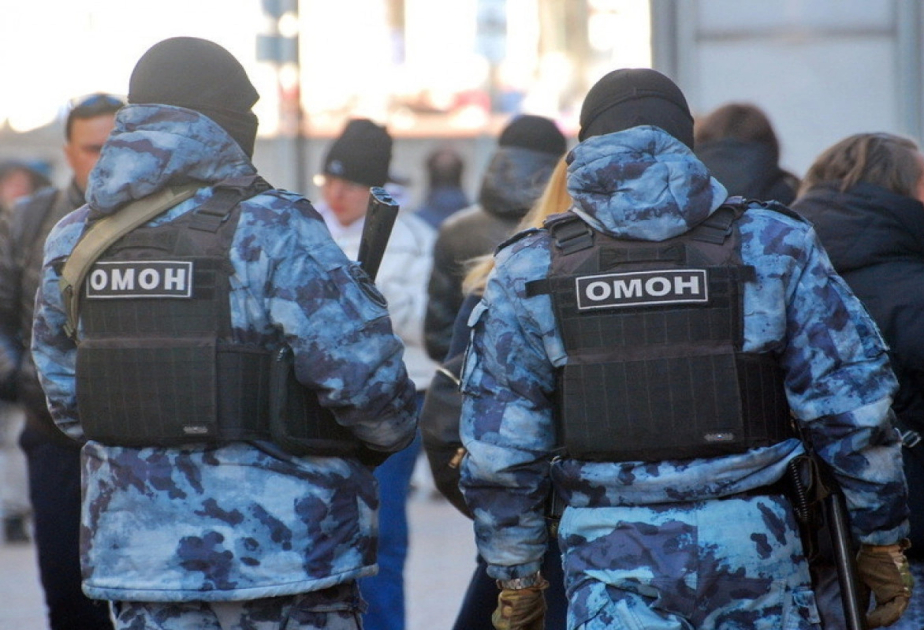Tokyo, 29 June, /AJMEDIA/
War has its own rules – written and unwritten. During wartime, laws become stricter, which is generally accepted as a necessity by society: a country at war inevitably tightens its regulations. For Russia, currently engaged in conflict, consolidating society through stricter laws is understandable. In a multi-ethnic country with a vast geography and restive regions, police raids are not unexpected. However, what remains unclear is why Russia politicizes this “law tightening” and uses it as a tool for pressure. Russia’s current domestic policies are reminiscent of 1930s Germany, characterized by “total propaganda” and “total control.” A state’s foreign policy is an extension of its domestic policy. Not all Russians support the war with Ukraine, and just as Russia tightens laws to pressure its domestic society, it employs similar tactics in its foreign policy.
Representatives of the Azerbaijani diaspora in Russia, like other diasporas, frequently face pressures. However, the actions committed by Russia’s special forces in Yekaterinburg on June 27 constitute a grave crime. Innocent Azerbaijanis were brutally killed by police in an overt act of violence.
The claim by Russian propagandist Margarita Simonyan that “Russia would defeat Ukraine in two days in a hot war” has proven false. Four years into the conflict, Russia has little to show beyond the destruction of Ukrainian cities. Ukraine, backed significantly by the West, maintains a strong defense, prolonging the war, which is devastating Russia’s economy and human resources. Western sanctions have worsened the already fragile social conditions, with annual inflation at 11.13%. The ruble has lost significant value against the dollar. Russia, which once held 26% of the European gas market, earning billions, now controls only 5%. Meanwhile, images of oligarchs’ children vacationing in Europe and Asia, shared on social media, fuel widespread discontent. Yet, it is primarily ethnic minorities who are sent to the frontlines to face death, a situation that breeds unrest in ethnic autonomous regions.
Presenting forced conscription without discrimination, massive losses for minimal territorial gains, as “success” only deepens societal discontent. Russian media ignores these grievances, instead seeking new “enemy images.” Classic imperial tactics are at play: create artificial conflicts, spill blood, then present Russia as a “peacekeeper.” Propaganda is deployed to manipulate public opinion, claiming Russia defends its citizens abroad or pursues a peacekeeping mission – claims that are absurd. In reality, Russia struggles to accept former Soviet republics as independent states, viewing them as former colonies and exerting military and political pressure.
Post-World War II, the Council for Mutual Economic Assistance (1949) and the Warsaw Pact (1955) made Eastern European countries key Soviet allies, but at a cost – hundreds of lives in Czechoslovakia (1968) and Hungary (1956). After the USSR’s collapse, none of these countries chose to align with Russia. History shows that oppression cannot indefinitely subjugate nations.
Russian writer Boris Akunin, who left Russia in protest of its policies and war, stated: “Russian society must act responsibly, look to the future, and realize the disasters awaiting it.” Russia is indeed on the brink of disaster. To avert this, the Kremlin appears to need new conflict zones. It is no coincidence that revanchist tendencies in Armenia, led by figures like Kocharyan and Sargsyan, are fueled by Russia’s regional policies, accusing the current Armenian government of losing Karabakh.
Neither the USSR nor its successor, Russia, has successfully defended its allies during real crises. Syria is a clear example, as were Iraq, Afghanistan, former Yugoslavia, Vietnam, Iran, and North Korea, where Russia stood by as these nations faced aggression. This policy has prevented neighboring countries from rallying around Russia, instead pushing them away. Meanwhile, progressive neighbors like Georgia, Ukraine, and Moldova, pursuing market economies and democratic governance, face Russian pressure despite posing no military or political threat. For instance, Georgia, with a population of just 3 million, cannot threaten Russia, yet Russia occupies part of its territory, undermining its economy and development.
Since liberating Karabakh, Azerbaijan has entered a new phase of development. Pursuing a balanced foreign policy with all global powers, Azerbaijan serves as a model of stability in the region – a “stability island.” Baku actively participates in critical international projects, from supplying Europe with natural gas to serving as a strategic transit bridge between Central Asia and Europe, often as the initiator or leading force. This success fuels Russia’s attempts to increase pressure on Azerbaijan. The Yekaterinburg killings are a stark example. In such cases, Russia often initiates a “migrant hunt,” baselessly accusing migrants of crimes like drug trafficking or terrorism. These incidents are not limited to Yekaterinburg but occur across Russia’s major cities.
Populist politicians in Russia, rallying under slogans like “Russia for Russians,” promote Islamophobic narratives, claiming migrants cause economic decline by taking jobs. In reality, migrants primarily fill grueling, low-paying roles Russians avoid.
The downing of the Moscow-Grozny flight, which killed many, followed by the brutal killing of five Azerbaijanis by police, defies logic, law, and human values. No amount of justification from propagandists like Vladimir Solovyov can obscure this reality. Russia’s repressive measures will not retain the loyalty of nations or states.
The detention and deportation of an Azerbaijani deputy at an airport, cyberattacks against Azerbaijan, baseless claims of “harmful substances” in Azerbaijani exports, and other provocative actions are inconsistent with allied relations.
These events demonstrate that Russia’s policies foster confrontation and erode trust, not stability. If Moscow wants to maintain regional cooperation and partnership, it must first abandon such hostile attitudes toward the very countries it calls allies.

